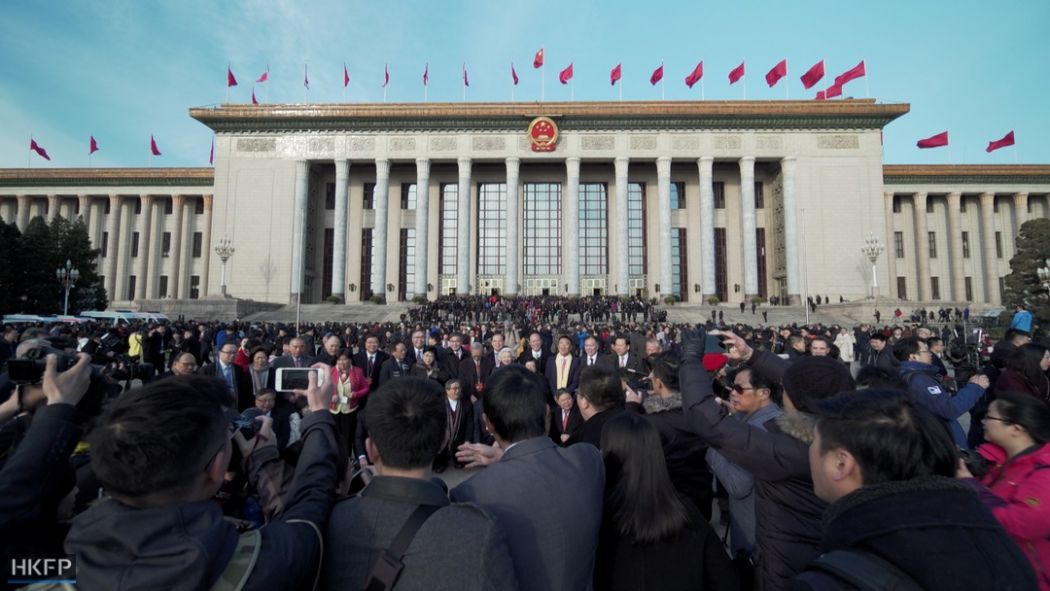The return of Mahathir Mohamad in Malaysia means we may see a revival of the Asian Values debate.
Earlier this week Malaysians went to the polls and voted into power the 92-year-old former Prime Minister Mahathir Mohamad. In many respects the removal from power of the United Malays National Organisation (UMNO) and its political allies is welcome news for democrats across the world.
This is the first time that this coalition will be out of power since the country’s independence in the late 1950s. This prolonged one-party rule has no doubt encouraged illicit practices like gerrymandering and corruption in Malaysian politics. Yet, while voters gave the corrupt Prime Minister Najib Razak a kicking, his successor is no liberal democrat.

Mahathir was a leading proponent of ‘Asian Values’ in the 1990s, when he was leader of Malaysia. Alongside Singapore’s Lee Kuan Yew, Mahathir strongly argued that individual freedom, in his view a western ideal, was not compatible with Asian societies which preferred the harmony brought by more authoritarian rule.
Lee and his supporters believed that among Asian people there is a preference for “a society with communitarian values, where the interests of society take precedence over that of the individual” (Bauer and Bell, 1999).
Despite this spin about the ‘collective good’, it was clear at the time that Asian Values merely served as a useful rhetorical tool for authoritarians to shield themselves from liberal critiques. As suggested by Chinese scholar Liu Junning, Asian Values were the values of a few Asian leaders and not Asian people.
What is more the concept did not account for the diversity of Asia and relied on demeaning stereotypes of Asian attitudes and culture. At the time liberal Asian leaders did push back against the concept. They included Taiwan’s democratising President Lee Teng-hui as well as South Korean dissident and future leader, Kim Dae Jung.
The past two decades have further discredited the notion of Asian Values. Democracy in India and Japan has been sustained, and throughout the 1990s and beyond democracy has flourished in previously authoritarian Taiwan and South Korea.
Today, Freedom House continues to report Japan, South Korea and Taiwan as ‘free’ and scores their levels of political rights and civil liberties as on par with countries in Western Europe. Meanwhile, recently Taiwan was ranked the top Asian nation for the sixth consecutive year in Reporters Without Borders’ 2018 World Press Freedom Index.
Additionally, the resistance to increasing Chinese Communist Party (CCP) encroachment from pro-democracy forces in Hong Kong shows a desire for more freedom in the region. All of which sits in opposition to Mahathir’s belief in Asian people’s preference for harmony over liberty.

Clearly Asian Values is based on many false premises. However, despite their falsity a renewal of Asian Values will only hinder those fighting for universal human rights across the region – including in Hong Kong. Instead such rhetoric will be music to the ears of leaders like Filipino strongman Rodrigo Duterte and President Xi Jinping.
In the 1990s, Asian Values posed a threat because the discussion was not just academic. Its advocates aimed to change the international community’s approach to human rights.
The Bangkok Declaration, launched by Asian Value proponents in the run up to the 1993 World Conference on Human Rights in Vienna, aimed at re-defining human rights standards which they believed should account for “national and regional particularities and various historical, cultural and religious backgrounds.”
They also sought to persuade the UN that human rights policy should be guided by the principle of non-interference.
During the election campaign Mahathir spoke of his commitment to Asian Values. Whether or not this will be pushed forward during his premiership remains unknown. However, with an increasingly powerful China trying to do exactly the same, these efforts might be more successful than they were two decades ago.
In the 1990s, in response to the Bangkok Declaration, US Secretary of State Warren Christopher told the Vienna Conference: “we cannot let cultural relativism become the last refuge of repression”.
In that spirit, if advocates of Asian Values rear their heads once again, then those who believe in universal human rights – in both Asia and the West – must challenge them.
